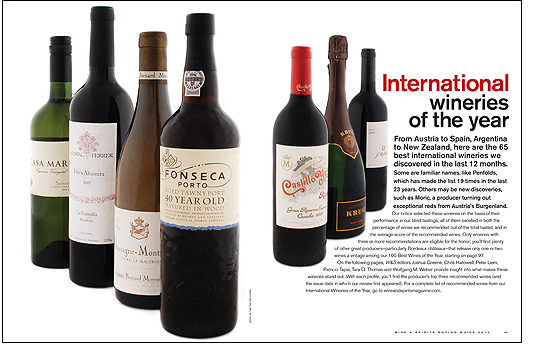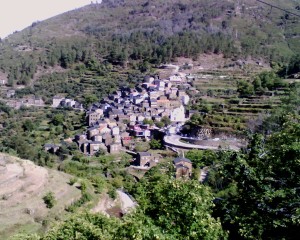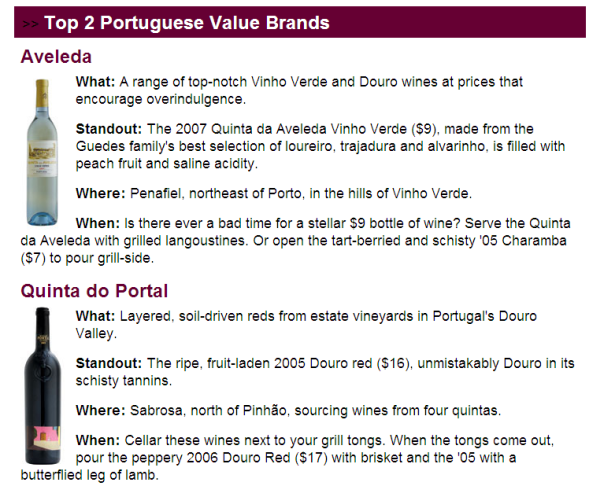To the Europeans: How easily do solidarity and demand for dignity of others disappear in our communities?
Posts Tagged ‘Europe’
How easily do solidarity and demand for the dignity to others disappear in our communities?
In Geral on March 17, 2012 at 21:14Machiavelli put into practice in leadership elections
In From Around the World on November 30, 2011 at 06:15A couple of months ago the Portuguese change their government to a coalition of right-wing parties, Partido Social Democrata (PSD) and Partido Popular (CDS-PP). The previous government was a center/left-wing government of a sole party, Partido Socialista (PS).
After the defeat of Partido Socialista in the elections, the former Party President and Prime Minister stepped down. Two candidates, José Seguro and Francisco Assis, emerged as solid contenders to the recently vacant position.
Each candidate had had a position within the ranks of the former structure. They are both experienced and well know figures inside the Party and in national politics.
Francisco Assis was the leader Party’s parliamentary wing and José Seguro was a former minister within the previous government.
Francisco Assis, had the support of the political elite of the party and José Seguro (the winner of the election and now the President of the Party) had the support of the bases, the party members that are anonymous to most Portuguese voters.
Now we turn to Machiavelli to help us understand which candidate will be better for the position. Both have political competence therefore is not significant to compare CVs or personal capabilities.
One thing really stood out during the media coverage and the political commentaries at the time- the fact that one had the support of the bases and the other of the elites.
In this case, where the difference is the mentioned one, Machiavelli can enlighten us.
Machiavelli thinks that a leader that was given power by the favour of the elites will most likely defend the elite’s interests over the people’s. Because if he doensn’t, he will be without support since the people don’t appreciate him and therefore won’t stand much time.
On top of that, even if the elected leader wants to have his own agenda and cater the interests of the people, his efforts will be sabotaged by the elites. Even though the leader is now catering to the people’s interests, the people aren’t loyal to the leader and will remain suspicious of the him. The people can be easily manipulated and turned against him.
On the contrary, if a leader was elected by the people and is appreciated by them, he will be independent of the elite and can easily say no to the elite’s interests. Even if the elites try to turn the people against its leader, since the people are loyal to him and appreciate him, they wont’ withdraw their support.
Machiavelli states that it’s best to go with the leader that has the support of the people as he knows that only defending the interests of the people he will maintain power.
If José Seguro becomes Prime Minister on the next election, assuming he will last that long, he won’t be defending the interests of the elites of his own party but the interests of the people who elected him.
Berlin Wall – Accident has always shaped human destiny.
In From Around the World on November 4, 2009 at 18:01Excerpts of a blog post from a Newsweek reporter that was in Berlin on the 9th of November, 1989. The full text can be found here:
Egon Krenz, the Communist boss of the German Democratic Republic, called it a “botch.” He was savoring a rare moment of triumph when his party spokesman stopped by in the late afternoon of November 9. “Anything to announce?” asked Günter Schabowski, innocently. Krenz hesitated, then handed him a press release. It was to announce a major initiative he had forced through parliament only hours earlier, and which the country’s restive people had been demanding in the streets for weeks: the right to travel. Krenz intended to give it to them – but only the next day, November 10.
Oblivious to this critical fact, Schabowski went off and read it out to the world in a now-famous vignette. “When does it take effect?” reporters asked. Confused, Schabowski neglected the all-important date: “ so fort ,” he said. “Immediately.” In a heartbeat, the damage was done. Astounded East Germans surged like a human sea to the crossing points to the West. Border guards, receiving no instructions and not knowing what else to do, opened them up. The rest is history.
Accident has always shaped human destiny. Even so, it is worth asking, What if Schabowski had not messed up? Imagine that, the next day, Krenz’s travel laws had taken effect in an orderly and efficient German way.
Strictly speaking, the Wall would not have fallen. It would have been opened, not breached. The Communists, not the people, would have done it. Change might have come by evolution, not revolution. Might Krenz and the Communist reformers who had seized power just weeks earlier have been able to channel popular unrest, or even defuse it? Instead of a unified Germany today, could there still be two Germanys, East and West?
The “what if” game can be played out endlessly. Without the drama of that night at the Wall, with all its inspiring visuals, would the Velvet Revolution in Prague have come one week later? Would Romanians have found the courage to rise against Nicolae Ceausescu a month later? The dominoes of Eastern Europe might have toppled differently. A few might not have toppled at all.
5 Portuguese Wineries in the best 100 in the World
In The very Best of Portugal on October 29, 2009 at 00:08The American Magazine Wine&Spirits chose 100 wineries from bling tastings of wines released over the past 12 months. The brands in the list produce a range of wines that score at the top of their categories.
 photo credit: wine&spirits mazine
photo credit: wine&spirits mazine
The 5 Portuguese Wineries selected to join the exclusive list are the following (after each wine name you will see “rated with ” and a number from 80-100. Keep in mind that a wine rated with 90 or higher is considered to be exceptional):
Winery: Aveleda
2008 Vinho Verde Alvarinho, rated with 92, $13
2008 Vinho Verde Quinta da Aveleda, rated with 90, $9
2007 Vinho Verde Grinalda Reserva, rated with 90, $15
Winery: Nieport (Prices not available)
2003 Vintage Porto, rated with 96
2004 Douro Redoma Reserva White , rated with 96
Winery: Quinta do Portal (Prices not available)
Quinta do Portal Grande Reserva 2006, rated with 94
Quinta do Portal Reserva 2005, rated with 94
Quinta do Portal Grande Reserva 2003, rated with 93
Quinta do Portal Reserva 2003, rated with 92
Duradero 2006, rated with 91
Best Buys:
Quinta do Portal Red Colheita 2005, rated with 92
Quinta do Portal Red Colheita 2006, rated with 87
Winery: Quinta do Noval (Prices not available)
2003 Vintage Porto Nacional, rated with 98
Winery: Fonseca
10 years Fonseca, rated with 91, $25
20 years Fonseca, rated with 91, $52
40 years Fonseca, rated with 91, $188
Some of the wines from Aveleda and Quinta do Portal were selected, by the same magazine, for the list of Excellent Wines bellow a $20 price tag. More information in my previous Two Portuguese Wines were awarded as “Value Brands of the Year”.
For more information about when to serve Port Wine in a meal, please check my previous post about White Port and Red Port.
Two Portuguese Wines were awarded as “Value Brands of the Year”
Lisbon’s New Orchestra: Lisbon Film Orchestra
In The very Best of Portugal on October 19, 2009 at 00:00A visit to Lisbon can now also mean listening to great soundtracks from memorable movies and musicals such as ET, The Phantom of Opera, Mamma Mia, Harry Potter, Star Wars, Physco and new ones that the Lisbon Film Orchestra is continuously incorporating into their playlist.
The Two Portuguese Nobel Winners
In The very Best of Portugal on October 17, 2009 at 00:00José Saramago
The Nobel Prize in Literature 1998
“who with parables sustained by imagination, compassion and irony continually enables us once again to apprehend an elusory reality”
The following excerpts were taken from Saramago’ s Nobel Lecture and shows what materials Saramago is made of, and what he has become little by little:
At the time I thought, though my grandmother was also a very wise woman, she couldn’t rise to the heights grandfather could, a man who, lying under a fig tree, having at his side José his grandson, could set the universe in motion just with a couple of words.
(..)
There could have been no other reason why, sitting one evening at the door of her cottage where she now lived alone, staring at the biggest and smallest stars overhead, she said these words: “The world is so beautiful and it is such a pity that I have to die”. She didn’t say she was afraid of dying, but that it was a pity to die, as if her hard life of unrelenting work was, in that almost final moment, receiving the grace of a supreme and last farewell, the consolation of beauty revealed. She was sitting at the door of a house like none other I can imagine in all the world, because in it lived people who could sleep with piglets as if they were their own children, people who were sorry to leave life just because the world was beautiful;I was finally aware I was transforming the ordinary people they were into literary characters: this was, probably, my way of not forgetting them, drawing and redrawing their faces with the pencil that ever changes memory, colouring and illuminating the monotony of a dull and horizonless daily routine as if creating, over the unstable map of memory, the supernatural unreality of the country where one has decided to spend one’s life.
I wrote these words almost thirty years ago, having no other purpose than to rebuild and register instants of the lives of those people who engendered and were closest to my being, thinking that nothing else would need explaining for people to know where I came from and what materials the person I am was made of, and what I have become little by little.
But after all I was wrong, biology doesn’t determine everything and as for genetics, very mysterious must have been its paths to make its voyages so long… My genealogical tree (you will forgive the presumption of naming it this way, being so diminished in the substance of its sap) lacked not only some of those branches that time and life’s successive encounters cause to burst from the main stem but also someone to help its roots penetrate the deepest subterranean layers, someone who could verify the consistency and flavour of its fruit, someone to extend and strengthen its top to make of it a shelter for birds of passage and a support for nests. When painting my parents and grandparents with the paints of literature, transforming them from common people of flesh and blood into characters, newly and in different ways builders of my life, I was, without noticing, tracing the path by which the characters I would invent later on, the others, truly literary, would construct and bring to me the materials and the tools which, at last, for better or for worse, in the sufficient and in the insufficient, in profit and loss, in all that is scarce but also in what is too much, would make of me the person whom I nowadays recognise as myself: the creator of those characters but at the same time their own creation.
(…)
What other lessons could I possibly receive from a Portuguese who lived in the sixteenth century, who composed the Rimas and the glories, the shipwrecks and the national disenchantments in the Lusíadas, who was an absolute poetical genius, the greatest in our literature (..)
(…)
No lesson would fit me, no lesson could I learn, except the simplest, which could have been offered to me by Luís Vaz de Camões in his pure humanity, for instance the proud humility of an author who goes knocking at every door looking for someone willing to publish the book he has written, thereby suffering the scorn of the ignoramuses of blood and race, the disdainful indifference of a king and of his powerful entourage, the mockery with which the world has always received the visits of poets, visionaries and fools.At least once in life, every author has been, or will have to be, Luís de Camões, even if they haven’t written the poem Sôbolos Rios…
What will you do with this book? It was also proud humility to carry under his arm a masterpiece and to be unfairly rejected by the world. Proud humility also, and obstinate too – wanting to know what the purpose will be, tomorrow, of the books we are writing today, and immediately doubting whether they will last a long time (how long?) the reassuring reasons we are given or that are given us by ourselves. No-one is better deceived than when he allows others to deceive him.
I conclude. The voice that read these pages wished to be the echo of the conjoined voices of my characters. I don’t have, as it were, more voice than the voices they had. Forgive me if what has seemed little to you, to me is all.- ©THE NOBEL FOUNDATION 1998
Egas Moniz
The Nobel Prize in Physiology or Medicine 1949
“for his discovery of the therapeutic value of leucotomy in certain psychoses”
In order to better understand his contributions to Science, read bellow an excerpt taken from http://cvc.instituto-camoes.pt/ciencia_eng/p12.html
His two most important discoveries were cerebral angiography, which he achieved in 1927 and prefrontal leucotomy, in 1935. The former was awarded the Oslo Prize in 1945 and the latter the Nobel Prize in Physiology or Medicine in 1949.
In order to be able to do a cerebral angiograph, Egas Moniz carried out many experiments, in an attempt to find substances that could be injected into the arteries of the brain so as to make brain vessels visible in x-rays. The opaqueness brought about by the injection of these products provided a contrast, making it possible to detect brain tumours, thus facilitating their treatment. On 28 June 1927, Egas Moniz obtained the first arteriograph of the live human body. This feat brought him great international prestige and became very important in the dissemination of his subsequent research work in the field of psychosurgery.
After this research work, Egas Moniz dedicated himself to another project for the treatment of some mental diseases that were one of the most pressing targets of neurological medicine at the time, before the development of pharmacology and psychotropics. It was thought that is was possible to treat some diseases via physical means by cutting the neurons’ interconnecting fibres. The treatment would be done on the prefrontal lobes.
Leucotomy was later transformed and developed by the American Walter Freeman, whose method became known as lobotomy. These methods gave rise to much controversy, particularly from the fifties onwards, when alternatives to the treatment of schizophrenia via prescription drugs started coming out. The negative image of the lobotomy and its very often abusive identification with leucotomy is closely related to Freeman’s methodology. Freeman carried out a true lobotomisation “campaign” in the United States, where he performed more than 3500 operations, being imitated by many other psychosurgeons in several countries. Although the leucotomy and lobotomy methods have been practically abandoned nowadays, the controversy continues.
Two Portuguese Wines were awarded as “Value Brands of the Year”
In The very Best of Portugal on October 15, 2009 at 00:06The American Wine&Spirits magazine has selected two Portuguese wines to the restricted list of Value Brands of the Year (45 from the Old World and the New):
The brands are chosen by the journalists of the magazine after 12 months of tastings. What they look for are great wines that do not cost more than 20 dollars.
Great choices for dinners you prepare or attend.
http://www.wineandspiritsmagazine.com/pages/values/0609VBrands/
Lisbon Restaurant Week
In The very Best of Portugal on October 14, 2009 at 14:47This year Lisbon Restaurant Week is from October 8 until October 18. On these days, as it happens in other cities, the best restaurants in Lisbon prepare gourmet menus (appetizer, first plate, and dessert) for only 20 euros.
Reservations can be made from the Lisbon Restaurant Week website.
The Rolling Stone Project II: Ana Moura “No Expectations”
In The very Best of Portugal on October 14, 2009 at 01:00The amazing fado singer Ana Moura has recorded two Rolling Stones songs in a Fado style for Tim Ries’ (saxophonist and musical director for the Rolling Stones) new project.
The Jazz Review site says the following of this project:
Tim Ries has produced a sequel to his Rolling Stones Project. Mr. Ries is a jazz musician, an educator, a saxophonist, composer, arranger and a leader. He is also a sideman and a crossover expert, having been a part of the Rolling Stones touring band since 1999. Stones World: The Rolling Stones Project II is full of surprises.
And so it goes as you travel the world from Spain, through to Portugal, over to India, the Middle East, Japan, Brazil and the U.S. of A.
There are many excellent performances and some memorable arrangements of classic pop standards. A few of the more notable include a gorgeous vocal performance by Portuguese singer Ana Moura on the tune “No Expectations”(..)
Just by listenning the first 5 seconds of the video bellow, live performance of the Song “No Expectations”, you can see the great talent of Ana Moura and her band.
This song can be a great introduction to the world of Fado:
– Pay attention to the Portuguese guitar, the main instrument in Fado;
Ana Moura sings in English and Portuguese, it’s simply fantastic.
It is really worth of your time!!
Village of Piodão
In The very Best of Portugal on October 12, 2009 at 17:00In order to better promote my country and its culture I have started a new category called “The very Best of Portugal”.
Here, not only you will find out more interesting details about Fado, Portuguese Writers (Luís de Camões and Fernado Pessoa to name a few), Port Wine, Casa da Música and Portuguese Guitar, but also tips about not so turistic and well known destinations in this beautiful country.
The Village of Piodão is one of the Portuguese Historical Villages. What makes this village so special is the construction of the houses which are covered in schist, a stone abundant in the area.

Piodão: Historical Village with houses covered by schist
One thing that really struck me was the fact that there are several villages in the same conditions (geographical, economical). It seems that the people of Piodão were original in distinguising themselves to attract tourism.
You can find pratical information of the village here

